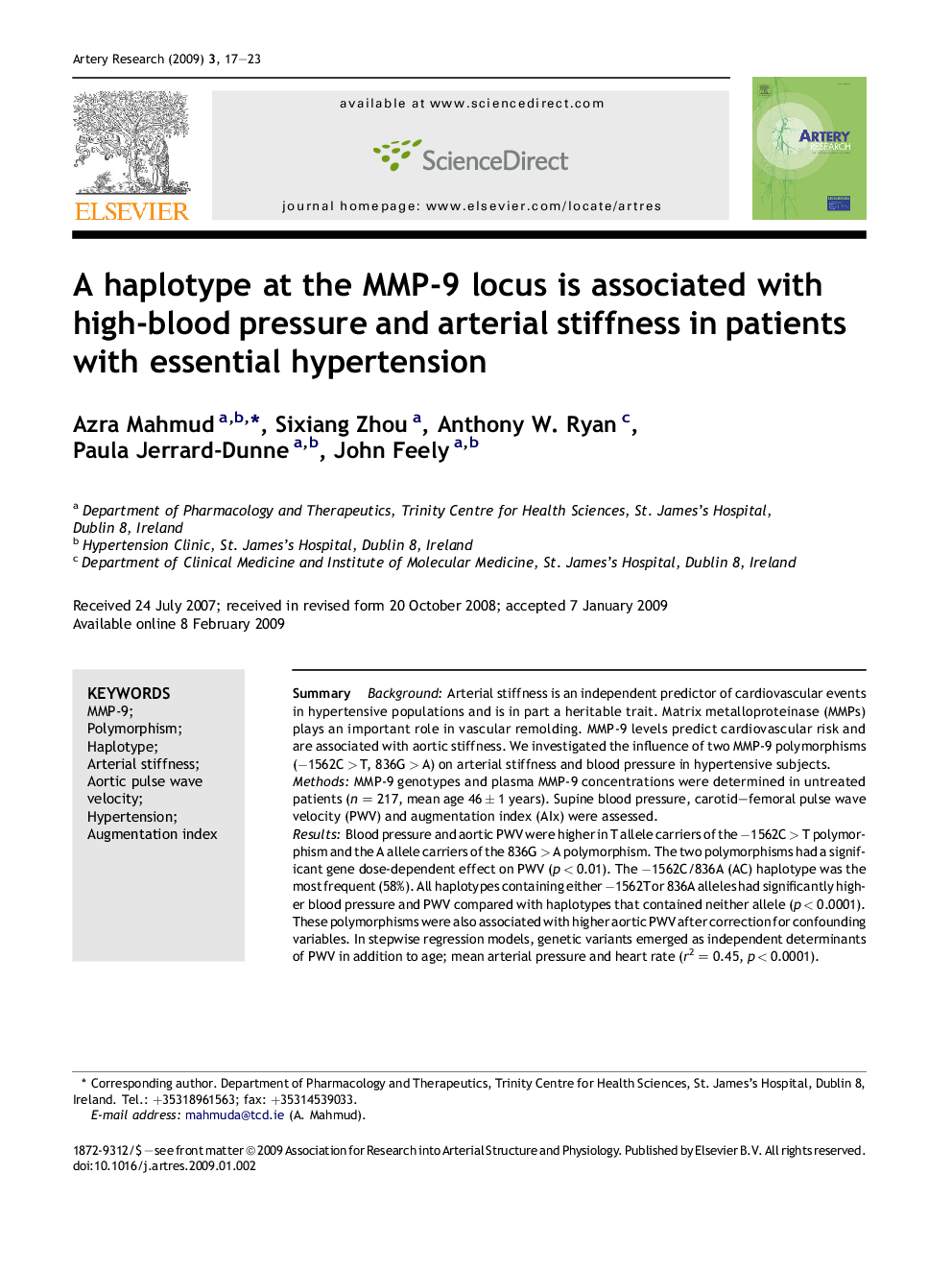| Article ID | Journal | Published Year | Pages | File Type |
|---|---|---|---|---|
| 2892285 | Artery Research | 2009 | 7 Pages |
SummaryBackgroundArterial stiffness is an independent predictor of cardiovascular events in hypertensive populations and is in part a heritable trait. Matrix metalloproteinase (MMPs) plays an important role in vascular remolding. MMP-9 levels predict cardiovascular risk and are associated with aortic stiffness. We investigated the influence of two MMP-9 polymorphisms (−1562C > T, 836G > A) on arterial stiffness and blood pressure in hypertensive subjects.MethodsMMP-9 genotypes and plasma MMP-9 concentrations were determined in untreated patients (n = 217, mean age 46 ± 1 years). Supine blood pressure, carotid–femoral pulse wave velocity (PWV) and augmentation index (AIx) were assessed.ResultsBlood pressure and aortic PWV were higher in T allele carriers of the −1562C > T polymorphism and the A allele carriers of the 836G > A polymorphism. The two polymorphisms had a significant gene dose-dependent effect on PWV (p < 0.01). The −1562C/836A (AC) haplotype was the most frequent (58%). All haplotypes containing either −1562T or 836A alleles had significantly higher blood pressure and PWV compared with haplotypes that contained neither allele (p < 0.0001). These polymorphisms were also associated with higher aortic PWV after correction for confounding variables. In stepwise regression models, genetic variants emerged as independent determinants of PWV in addition to age; mean arterial pressure and heart rate (r2 = 0.45, p < 0.0001).ConclusionsAortic PWV and blood pressure were modulated by −1562C > T and −836G > A polymorphisms in the MMP-9 gene in this treatment naive hypertensive population. These genetic polymorphisms may help to identify hypertensive patients at increased risk of cardiovascular events.
